|
The following is an excerpt from Bill’s Quest,
a novel-in-progress by Jared Daniel
|
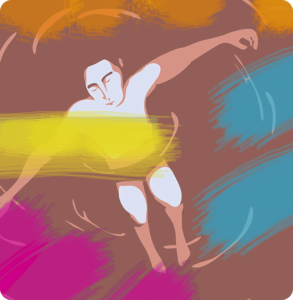
Bill’s Epiphany
( or When Our Naive Hero Gets Drunk On Mezcal
and Assaults A Statue Of Tom Cruise )
Bill’s gaze fell from the faraway hill to two people in the foreground across the road. The two people were a woman and a man. The man wore silver make-up on his face and on his hands. He wore clothes that had been painted silver. Also he wore sneakers that had been painted silver. Also a silver sombrero. Also he held a silver gun.
The woman was blond. She wore flip-flops, short shorts, a tanktop that was loose and a bra. The silver-painted man had one arm around the woman. With his other hand he gripped the gun. The gun was very long. Its muzzle rested on the temple of the woman. Extended in front of herself, the woman held a stick, a metre or so of stainless-steel metal alloy. Affixed to the end of the stick there was a phone.
This is strange, Bill thought. I am seeing something strange.
Bill sipped from the blue drink in front of him. He looked to the small opening of the straw. Many times in his life Bill had heard that things happened for a reason. He could not say where he had heard it. “Everything happens for a reason.” Somewhere. Many times. Bill was certain.
But there’s gibberish, though.
Is gibberish one of the things that happen for a reason?
Bill looked from the opening of the straw to the window across the room. A scooter brushed through the frame. Somehow the woman and the man hadn’t moved. The muzzle of the gun remained resting on the temple of the woman. The woman held the metal stick with the phone. The phone did not seem to want to take the picture. Too much time was passing. The camera that trembled. The two flexed faces. The long silver gun. Everything inflating beyond the point you would think that it could.
But there were reasons, Bill knew. Purposes. The woman would get a picture. The silver-painted man some money.
But me, Bill wondered.
I am on vacation.
I’m a tourist.
But for what purpose?
Bill wondered if perhaps his whole vacation might be a type of gibberish.
Or trip?
“Trip,” Bill decided immediately, was better than “vacation.”
But was his trip a type of gibberish?
A car blurred through the frame of the window. Bill looked into his large blue drink. The ice had melted. He watched the umbrella very slightly drift. Again he looked out the window to the muzzle of the silver-painted gun. The woman held her smile perfectly. So did the silver-painted man. The camera trembled. The camera wouldn’t take the picture. Bill looked to the dark hill. He looked at the spot on the hill that the sun was behind.
“Mezcal,” Bill said quietly to himself. He had never seen the word before. He read it on the menu of the bar in his hotel.
Bill carried the small glass using all ten fingers. He set it down on a table in the sand. He sipped the mezcal to the bottom. Immediately he felt elated. He went back through the lobby into the bar and ordered another and returned with it to his table. Bill did not often drink alcohol. It was fun, he decided. The elation came mixed with excitement and surprise. He made several more trips between the bar and the table. Before very long he was drunk.
Bill slumped in his chair and considered the pale wood surface through the clear liquid in his glass. A dignified little scene. Dignified and serious. Bill imagined a large blue drink with an umbrella in its place. It was very obvious. The glass of mezcal was much, much better.
He lifted the glass and swirled the liquid. He drank it. He remembered the sounds of the waves. He tuned into the sounds. Soon he was bored. He looked to the waves. He remembered the wax museum. He stood and threw back the last sip. There wasn’t one. He threw the glass into the darkness. He moaned. In his mind the moan was something like a howl.
Inside the hotel the lobby was still. Bill wanted to chat. There was nobody behind the counter. Next to the counter there was a stand. Pamphlets. Bill picked one at random. He leaned on the counter. Promising to inspire, the volcano hovers in the mist over Puebla silently stating her immortality.
“Big volcano,” Bill said to himself.
He threw the pamphlet hard at the floor. He pushed off the counter. He entered the wax museum.
The wax museum was a long, narrow room. The figures stood back to back in a line down the middle. Bill rolled against the wall— shoulder, chest, shoulder— then pushed off with his elbow. Between each pair of shoes golden nameplates passed by on the floor.
María Félix Diego Rivera Jared Borgetti Cuauhtémoc Pancho Villa
Bill didn’t recognize any of the names. Pancho Villa maybe but he wasn’t sure. Diego Rivera maybe. Bill felt no warmth toward the names. They held meaning indirectly. He knew that other people knew the names. That the names belonged to people whose lives had held meaning. After death the meaning had continued on. It had travelled by wax through time. Bill felt jealousy. He saw himself as wax. He saw himself as a figure lined up with the others in the long narrow room. Travelling.
Hernán Cortés John Lennon Jesucristo Vicente Fox María Rojo
Bill’s shoulder touched the wall and he rolled. He turned the corner. He looked up and stopped. A familiar face. Bill pointed at the face.
“Tom Cruise,” he said.
The statue of Tom Cruise stood without neighbours, alone facing the back wall of the museum. Tom Cruise wore a tuxedo. Bill remained pointing at the face. The face appeared tense and contemplative, as though reliving difficulties confronted in the past.
“Thomasss,” Bill said.
He lowered his finger and then whipped it back, “You frigginnn’…”
Nothing came. He pulled back his arm. He threw his fist, connecting hard with the forehead of the statue of Tom Cruise. The forehead was hard and glossy. It rebounded Bill’s fist. Bill lost his balance, stabilized, then lunged forward pointing. He breathed on to Tom Cruise’s face. There was damage to the face. The eyebrows, misshapen, appeared furrowed. It was as though Tom Cruise were looking down. As though he were obstinate. Like he refused to meet Bill’s eye.
Bill felt the bed suddenly underneath him as a vague feeling of regret accompanied him from sleep. He lifted his head. He recognized his t-shirt and his shorts from the day before. He felt soreness in his hand. He looked at the back of his hand. There was a strange glossy substance. He remembered. Tom Cruise.
Bill rolled off the bed and stood. He turned until he saw his suitcase. He began packing his clothes. He vomited on the floor. Crouched on the floor, he reached for the towel that was also a swan.
Some minutes later Bill stood with suitcase in hand, considering the door. He had four pre-paid nights remaining. Four nights until his flight back home. But now he had to leave the hotel because he had punched the wax Tom Cruise. He wasn’t sure where he would go. He wasn’t sure if he would die. First thing was to get across the lobby. He took one last look at his pre-paid room. He looked at the swan on the bed. It wasn’t a swan anymore.
Bill stared out the window of a bus. There were spaces between the trees. The sun was still low. Bill could see it behind the trees.
Fleeing from a crime now. I am fleeing from a crime.
The branches brushed the light. The tree trunks chopped the sun.
Bill sat in the sand beside his suitcase. He was thinking things over. Not everything was necessarily so bad.
Now I am not on a vacation. I wanted to not be on a vacation. I am on the run in Mexico because of violence.
No one was on the beach except for Bill. Sitting in the sand, thinking things over, Bill looked to the horizon. He saw a boat. It was so still. It could have been in sand instead of water.
After fleeing the hotel Bill had taken the bus to the first destination that was available. Upon arriving Bill walked the town until it thinned to a strip of green between the beach and a highway. The question was what to do now. Grasping an answer felt difficult to imagine. Eventually though, it was clear, an answer would have to come. And so Bill sat watching the still boat, conscious of its movement forward through time, and of his own movement through time, closer and closer, always, to the knowledge of what it was he would do. The question was the same question as where he would go. And behind this a third question, one that felt thin and spread to a wider breadth, filled the rest of the space in Bill’s mind. The question of why he would be doing the thing that he would do. He would go to a place and he would do a thing. But for what reason?
Bill followed the boat through the hours. The sun across the zenith. Finally Bill stood. He picked up his suitcase and began walking back the way he had come. The direction of the town. And he walked knowing now what it was he would do. And he knew the reason why. The reason he’d come to Mexico, even. The purpose of his trip. Sitting there on the sand it had become clear. There was a volcano that hovered immortally in mist. As he walked Bill could see the mist in his mind. Inside the mist hovered the volcano, glinting. Polished.
Not a trip at all.
I am a person who is on a quest.
Some people are different.
There is an urge.
Sometimes.
For some of us.
Maybe it is strange.
Bill walked with strong, deliberate strides where the waves sank into the sand. Already he felt different.
Back home it wasn’t possible.
Of course.
Home isn’t a place where you do a quest.
I had to travel to Mexico.
It was something Bill felt certain anyone would have been able to see. He saw himself walking. A man walking on a beach with a suitcase. Anyone, surely, could see it. The amount of purpose in this man’s stride.
Bill looked to the still horizon. The boat at the bottom of the tall sky. Waves silently fell from the horizon. Bill halted his steps. He had an idea. It was an idea for the immediate future.
An urge, more like.
An urge like a big urge for a quest. But this one was smaller. And immediate. A receding wave sucked his feet. He stepped back and dropped his suitcase in the sand. He took off his shoes and his pants. He took off his shirt. He took off his socks. He had never stepped into an ocean before. He stepped into the ocean.
“The ocean,” he said.
It struck Bill as odd now that he hadn’t ever noticed he was this type of different person. The type who had them. Urges to go on quests. Urges to just walk right into the friggin’ ocean.
Bill laughed. He turned on to his back, floating starfish as silent waves rolled underneath. Between waves the ocean wobbled. Bill felt his ears fill with water and empty, a transfer between two worlds.
—About the author, Jared Daniel

|
This is the definitive author’s cut, published with permission of the author, of the titular story that appeared in Harper’s Magazine and was edited down due to length considerations therein. This version reflects the author’s ultimate vision. To compare it to the original, please see the Harper’s version.
|
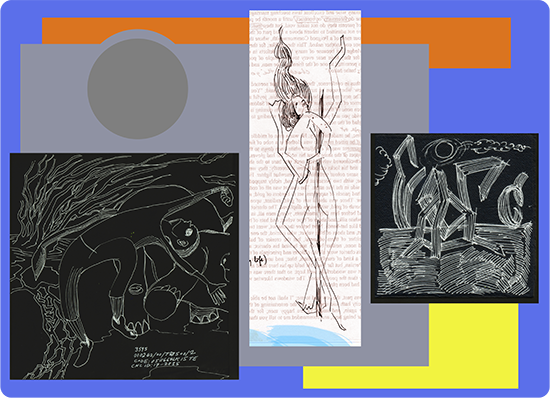
That Doubling Is Always Observed (Author’s Cut)
On the Kupuestra
It is not supple. It communicates nothing. The kupuestra is mute; brittle; many-cornered, the body as polygon; the choreographic equivalent of Ak-Mak crackers but without the sesame seeds. It is performed without music. It is performed without face or torso. It does not arouse the passions in the manner of, say, the tango. It does not stir the heart, the pathetic object of that old wadded-up valentine the waltz. The kupuestra is not old. It is not wadded-up. Like weeping, it is colorless. Like Tuesday, it has no scent. Most performances (not all) go unnoticed. The great artists of the medium (save one: see On Lop, below) are unknown; all owe their anonymity to their unwholesome pallors and pretzel bones; all die before the age of forty. (This last is an inference. What we know with certainty is that no artist of the medium greater than the age of forty has been observed.) Because of the way the heels are brought together, then snapped violently into the inner thighs and locked there (enremmeta, “as if kissing the private parts”) in the dance’s most recognizable kinetic, the critic Eugene Genova has compared the kupuestra to the communal dining of jackals (which begins at the entrails and moves skinward) and labeled it savage and reprobate.
Genova is misguided. The kupuestra is not savage and its merits are obvious. It is a dance for our time.
On Early Training
Children are chosen for the academy at age three. The principal criteria for acceptance are an unfathomable facial expression; skin of a dreadful hue; want of ambition; and a willingness to be placed in enremmeta and to remain so without complaint. During the audition the applicant is suspended from cables to test for infirmity of purpose— “like a dead marionette,” as Genova put it famously.
Children remain at the academy until they have nothing more to forget. They train intensively, usually at night, gradually advancing through twelve degrees of ignorance. Communication with parents is forbidden. Snacks and bicycles are forbidden. On completion of their studies, students are awarded monogrammed napkins and sent packing. Most are never heard from again. What they do with their training, or their napkins, is unknown. (Exception: See On Lop’s Napkin, below.)
On Performance
Performance is the wrong word. The kupuestra is come into. It is assumed. Imagine wool. Imagine Emily Dickinson asleep. Such images convey the lumbering poetry of the dance— its arrested couplets, its elevation of inertness to a majestic level. Once enremmeta is achieved, nothing remains. Genova has, predictably, attempted comment, without success. Between stanzas short bursts are permitted, as the dancer moves blindly along the collapsing boundaries, clueless as to the outcome. And then it is over— or not, as the case may be, depending on many things.
Solos are not unheard of, but true kupuestra jigsaws and so requires clusters. The ideal setting for an assumption is a pit or a quarry, or any brown place without trees. Observers go there single file. They surround it. What they see they shrug off at once.
On Vekner
Edward Vekner was the father of the kupuestra, albeit an unwitting one, a man whose understanding of the dance did not exceed a lizard’s understanding of algebra. He once admitted that until he was twenty he believed that motion on the dance floor was a tidal phenomenon brought on by the gravitational pull of the moon. Vekner’s passion was hay rides. As a child he dreamed he would one day ride a hay bale into battle. This never happened. Instead, he became a designer of cemeteries. (Genova provides a plausible explanation for the farcical trajectory from military hay rider to graveyard architect: the flip side of a live soldier atop a heap of alfalfa is a dead one beneath a field of poppies.) The cemetery designer does the best he can with a bad situation, and Vekner assuredly did that. However shallow his understanding of the dance, his landscapes were wide, his holes dark and deep.
On Vekner’s Epiphany
Vekner didn’t know a two-step from a turnip, but he had a pair of eyes and he knew what to do with them. Business took him to Reefmeer. There he happened to meet Hepple, the well-known foundation excavator. During their conversation, which began vaguely and continued ambiguously, Hepple mentioned the recently discovered mass grave on the Aupuene and offered to show it to his new friend.
The following morning found the two men traipsing toward the site single-file, along with hundreds of townsfolk. As they reached the spot, a depression that was neither large nor small, nor was it medium, they shambled along the lip, circling, until all had found suitable vantage points. There they paused and gawked.
What is there to say? It rose up. It was there. It was stately, in a way, but with zing. It was a kind of too much (but not totally). Interlocking could be inferred. At the summit of the pile was Enremmeta, a house painter. Hepple remarked on the doubling back of the legs, heel-to-thigh, and mentioned that the pose had been seen at the summit of other such piles.
Vekner felt a crushing pain in his chest. Struggling for air, he stumbled back to his room, aware that his life was in danger. After the Aupuene he traveled to Juulena, then Dalveddian, then Meriol. At the time, few such piles were known. Driven underground like a common thimblerigger, the poor man was forced to abandon his family, his business, his golden retriever, and come into his life’s work fortified only by emergency rations of bewilderment and chagrin.
Had he lived today, in our time of a kind of too much, when every cardiopulmonary system is engaged and every town has its pile, he might have been spared much grief and been led to his celebrated discovery in short order. As it happened, seven years were to erode beneath his feet before he had seen what he had seen and resurfaced to announce his astonishing findings: that whatever the why, that however the unraveling, that whenever the inquiry, that wherever the gawking, that whomever the heap—that doubling back of the legs, heel-to-thigh, is always observed. And this: that although he knew nothing of the dance, he knew it was like a dance.
On What Happened to Vekner Next
He did not end up in a pile himself. The man enjoyed a brief celebrity. After the fuss he returned to his family, his business, and his golden retriever, welcomed by all except the latter, which sniffed at him as she might have addressed a new hassock in the family room. There were commissions, consultations, a tiny award for good grooming. He was invited to snip the ribbon at the ground-breaking for the academy. He developed pains in his legs, the lingering hoofprint of an old hay-ride injury. Chiropractic produced a quick cure. Life went on and then it didn’t. At an age too soon Vekner went blind, then mad. On the fifth day of the fourth month of his thirty-seventh year, he choked to death attempting to swallow his tongue. He ended up in one of his own cemeteries, beneath a stone reading Aboveground at last.
On Lop
Lop was a many-angled Cremeran. The kupuestra was made for her, or her for it, or something. Thousands have danced; only Lop sank in. She was unfathomable, she was cracker-like, she was the color of bacon grease, yet she was not shrugged off. Old-timers recall not wool but Lop at the top— spindly needle-nailed fingers scratching at the sky, horned hips, notched brow, sawtooth chest zagging against the breathless frozen-night drift of the moon. The remembered usually defy convention. Lop defied astrophysics. There was always a moon, or Antares, or a frolicking galaxy when she danced, even on the stage at the local civic center. Vellone, who loved her, wrote of Lop in enremmeta—
crooked as a cow path but floating in a spiral
nebula of pink argon
but
Others who danced embodied earth. Lop embodied space. Therein lay her secret. Even in an airless cluster she found elbow room. Even in enremmeta she became void. The kupuestra communicates nothing, and Lop did not say that void is good or that it is chilly or even that it contains fish. Void with good or with trout is not void. Lop said that void is void. If you insist on meaning you are as misguided as Genova (who hated Lop and really hated Vellone, whose saccharine rhapsodies he compared to frilly underpants); but here, try this: Lop said that void is void, by which she meant that sooner or later you will end up in a hole in the ground, but relax, it won’t be as bad as you imagine, because a hole can contain nothing— not you, not fish—so that wherever you are must be somewhere. If you find this exegesis comforting, fine, but you are missing the point; if you find it mindless, well done, you are floating in a spiral nebula of pink argon but.
On Lop’s Birth
It would be stirring to relate that Lop arrived on Earth in an empty envelope from the planet Zook, but it would also be untrue. She arrived on Earth in the normal fashion— screaming, flailing, seething, burning for revenge; the unfathomable, cracker-like, grease-colored daughter of two frightened parents who had expected a bundle of joy but received instead what appeared to be an enraged porcupine. The child would not be calmed. From behind a hastily constructed barricade, a recent medical school graduate assured the small, bewildered parents that, like all thorny babies, little Lop would grow up to run a successful business; moreover, within five minutes she would succumb happily to warm milk and a bath, at which time the prickers would retract and contented cooing commence.
All of which was, of course, wishful thinking— more wishful than thinking, as it turned out. The recent medical school graduate was wrong. Lop never cooed. The prickers never retracted.
The child’s most notable feature, even including her color, her consistency, and her rage, was a halo. Cerulean in hue, murky as the Lotus of the True Law, it surrounded her little spiked head not as Giotto or Cimabue might have installed it— like a ring of Saturn— but instead cubically, like a packing box for a Rand-McNally globe. Within, she wailed.
All children are born with the crushing realization that they have just been transferred from a vile, suffocating prison to one even more vile and more suffocating. Yet through the direct application of mushy kisses and teddy bears, parents are able to drive this intelligence underground, behind the medulla oblongata, beneath the logos and the anima, into the remote, cavernous tunnels of Plot Central. There it is snipped into enough story lines to supply a lifetime of nightmares and neuroses. Deprived of the truth, denied the lowdown on their origins, the children grow up to be useful voting citizens.
Little Lop was different. Her halo acted as a hermetic shield. Kisses and teddy bears, no matter how thickly applied, could not get in; the crushing realization could not be suppressed. On the contrary, it orbited her head like a communications satellite, coming face-to-face with her face once every ninety-six minutes.
The rest of the time she breathed free. Other babies, smothered by love, had no rest of the time. They grew short of breath. Lop grew long of breath. She developed space. She developed comets and asteroids. She became a star in her own disturbing universe. Her halo gave her an edge over other babies, wisdom none of them had: Only disconnect, it counseled. Fight only for air. Her head swam in a revelation of blue. At the age of two days she decided on her life’s work.
On Lop’s Napkin
She made of it a small boat. This upon departing the academy at an advanced age, still struggling to achieve even elementary ignorance. It was decided that although she hadn’t forgotten everything (she had, in fact, forgotten nothing), she had forgotten as much as she was capable of forgetting, and therefore, technically, had fulfilled the requirements for release. At a festive snack with the institution’s spiritual director— a descendent of Vekner’s— Lop was presented with her own napkin, which was buff-colored and heptagonal. She immediately folded it into a replica of a slave galley. Beneath the monogrammed “L” she drew a poor sketch of herself in enremmeta. Then, in tiny letters, she wrote:
If you find me
Look right through me
I am nothing
If you are folded, decrease
If you are cleaved, depart
Follow nothing
Seek the nothing in all things
(Signed) a dancer, but
Then she excused herself, went into the bathroom, tossed the little boat into the toilet, and flushed. The vessel descended with a choking sound, as though there were passengers on board. It passed quickly through the town’s sewer system and out to sea. For seven years the craft plied the world’s oceans, seven years of valor and fury. At last it made land— at a beach near Fendago— where Vellone, an unpublished poet, retrieved it.
Reading the message the old man was greatly cheered. He had sought nothing his entire life! The napkin still carried Lop’s many-cornered scent and her depth. Pickled by the pungent vapors, bewitched by the abyss, the man who sought nothing determined now to continue his quest by setting out to find the boat builder. Her scent led him quickly to the city of Kantrice, her depth to a bakery, where he located the object of his search in enremmeta, floating in a spiral nebula of pink argon but.
In accordance with Lop’s wishes, he saw right through her. He saw a priest with a yo-yo. He saw a mountain wearing a hat. He saw a drawer full of vanilla beans. He saw, above everything, a rainbow advertising hiking boots. These were not drug dreams or chimeras: Lop’s universe was hung thick with them! They were Arcturus and the Pleiades. They were the quarks and the leptons in void. They were the benevolence of the woman, the reassurance that it is never as bad as you imagine.
Vellone watched for as long as shapelessness allowed. Then he began to write.
On Lop’s Final Years
Vellone’s little collection, That Doubling Is Always Observed, sold eleven copies. Lop claimed that the author had mistaken the artist for her art; Vellone did not respond. In the city of Kantrice, needless to say, he had become the why. He was discovered there, years later, in enremmeta.
Lop’s edges, meanwhile, transmogrified; she remembered things she had never known; her legs straightened; she walked by the sea, enchanted.
One day she decided to take off her halo. She placed it on the beach beside something narrow yet smooth. The excellence of the halo was carried off by the next storm, but no matter: a yellow skiff came in sight, searching for things to rescue. Lop waded out to greet the craft. She received a hearty welcome from the captain and the crew. And soon they departed on the April tide. Like Vekner, she was thirty-seven. Like Vellone, she watched for as long as shapelessness allowed. She is somewhere, with the others.
The End
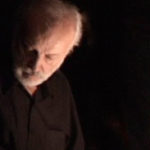
About the author, Robert Leonard Reid
© Robert Leonard Reid
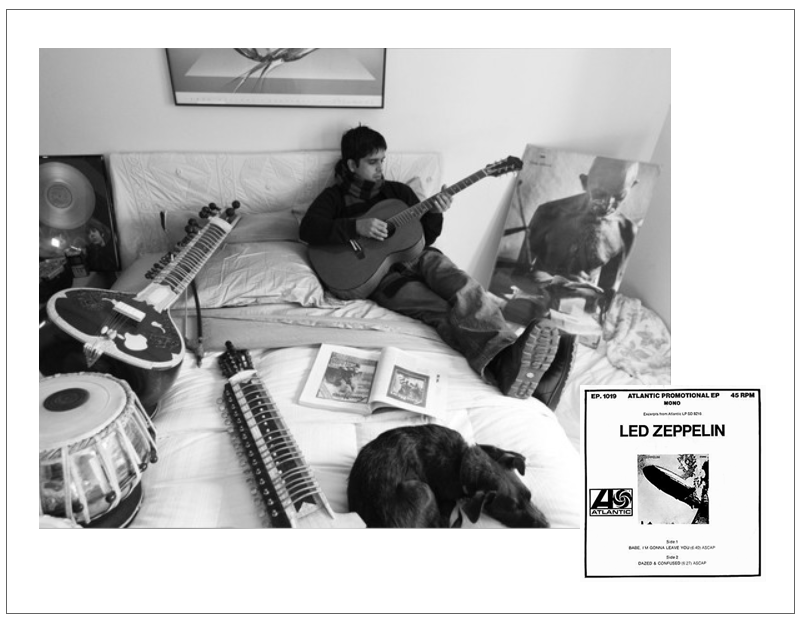










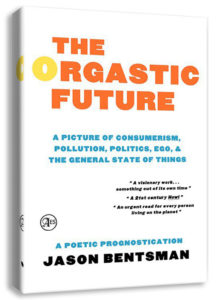

Recent Comments